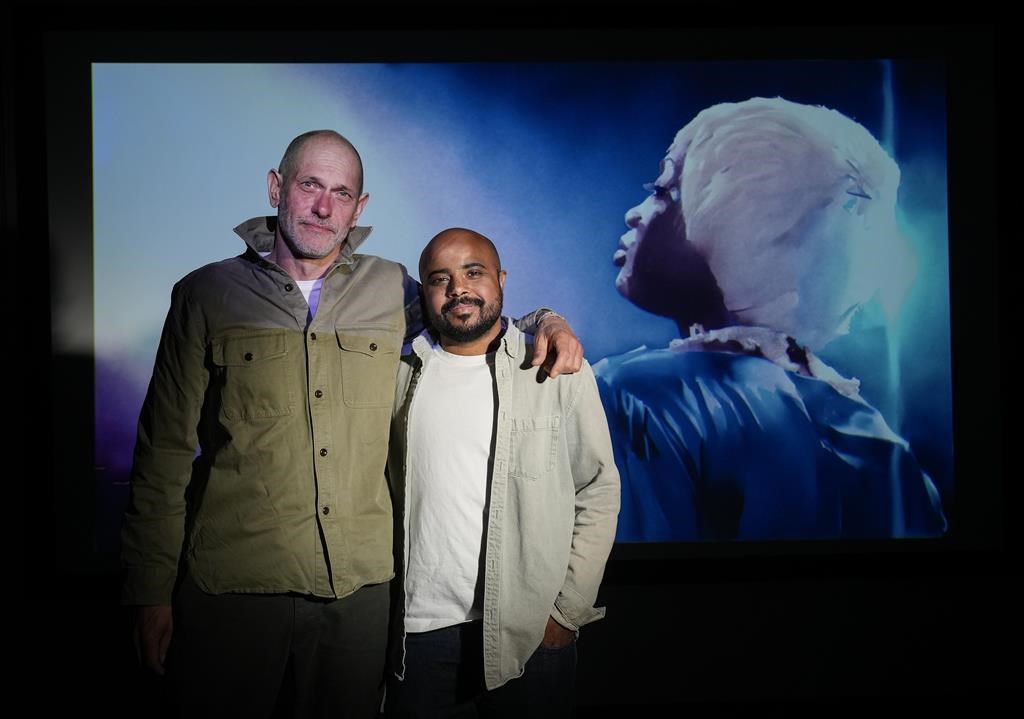TORONTO — A year before her death in 2019, Jackie Shane decided it was finally time to tell her life story.
The trailblazing transgender soul singer was a mystery ever since vanishing from the spotlight in 1971 after dominating the Toronto music scene throughout the 1960s. For decades following her retirement, the Nashville-born artist lived in obscurity until a 2017 retrospective album, which earned a Grammy nod, catapulted her back into public attention.
“That’s when the world and I found out she was still alive, so I spent a year trying to get through to her and I finally did,” Edmonton-born filmmaker Michael Mabbott says.
After numerous ignored phone calls and emails, Shane eventually responded to Mabbott in 2018, agreeing to let him make a movie about her.
“I spent a year talking with her over the phone, and part of that was her telling me her life story and then also telling me what a film about her would look like in her eyes and what she wanted an audience to feel.”
The resulting documentary, “Any Other Way: The Jackie Shane Story” — which Mabbott co-directed with Toronto’s Lucah Rosenberg-Lee and is executive produced by Elliot Page — will have its Canadian premiere at Hot Docs on Saturday. It fills in the blanks of Shane’s life, providing a full account of how she became one of music’s first Black transgender performers.
Mabbott’s fascination with Shane began when he heard her 1967 album “Jackie Shane Live,” which captured one of her impassioned live sets at Toronto’s Saphire Tavern, where she played frequently.
“I was just blown away that this music was made in Toronto at that time,” says Mabbott, best known for his 2005 mockumentary film “The Life and Hard Times of Guy Terrifico.”
“I wanted to know everything I could about who this was. She disappeared immediately after making this album, and nobody knew anything about what happened to her, which just intrigued me more.”
The film, co-produced by Banger Films and the National Film Board, captures Shane as a soul star on her own terms. She was a force in the Nashville R&B scene during the 1950s but sought refuge in Canada from the discrimination she faced for her gender identity. In Toronto she found a more inclusive and accepting environment, headlining packed clubs where she would don makeup, sequined tops and wigs.
“I remember feeling like I was born in the wrong body, but everyone around you is telling you that doesn’t exist,” Rosenberg-Lee, a Black trans man himself, says.
“One thing that makes Jackie so amazing is not only did she have those same feelings, but she was allowing herself to be female in her own mind before trans was even a term. In that way, I think she is a really big trailblazer.”
Mabbott spent “hundreds of hours” on the phone with Shane, who was back living in Nashville, to get her backstory, with the intention of eventually interviewing her on camera. She died before that could happen.
As a result, her phone recordings provide a narrative thread throughout the film, while rotoscope animations portray her performances and the calls from her home.
“She was a Black trans woman born into the Jim Crow south, and she faced a lot of struggles, a lot of ignorance, a lot of evil. But the amount of laughter in these conversations was surprising,” Mabbott says.
“She looked at the ignorant people and didn’t as much consider them evil. She said, ‘These are scared people. They’re scared to be themselves.'”
After Shane died, Mabbott recruited Rosenberg-Lee, who helmed 2015 short doc “Passing,” to help him make the film, noting similarities between his work and the “intimate and beautiful” type of art Shane said she liked.
At the height of her popularity, Shane turned down several high-profile opportunities, including an invitation to perform on “The Ed Sullivan Show” because its producers wouldn’t allow her to wear makeup on TV. Mabbott believes she retreated from the public eye because it was the only way she could live authentically.
“Jackie was not able to be her true self when she was under the spotlight, and so she had to leave it,” he says.
“In order to live on her own terms, at least for her, it meant that her world got smaller and smaller.”
After leaving the stage, Shane moved to Los Angeles with her partner at the time to live her life as a woman. She eventually moved back to Nashville to take care of her ailing mother and remained there for the rest of her life. But she often reflected on her time in Toronto with fondness.
“Jackie always talked to me about returning to Toronto. She regretted leaving in some ways, and she wanted to come back. She wanted to play shows. She wanted to play at Massey Hall. She wanted to play Pride,” Mabbott says.
“Unfortunately, that didn’t happen because she passed away. But I think having her voice and having her music play at theaters here gets us some way to that dream.”
This report by The Canadian Press was first published April 26, 2024.
Note to readers: This is a corrected story. A previous version contained a misspelling of director Michael Mabbott’s last name.


